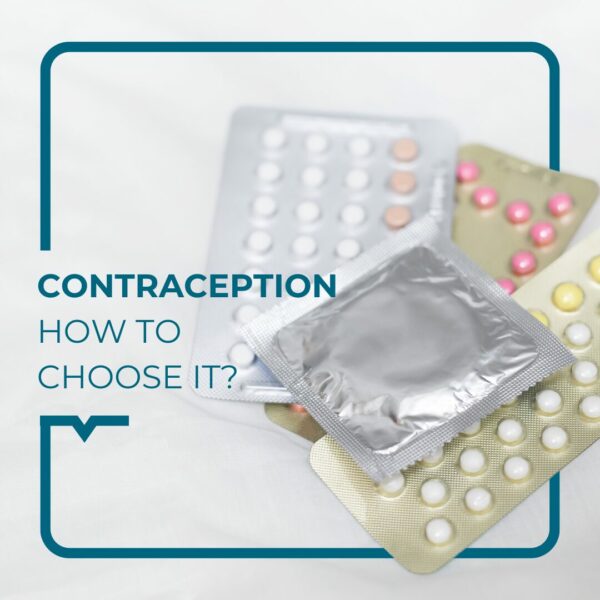Aurore, 25, changed her contraceptive method six months ago and has recently been experiencing weight gain, skin problems, painful and irregular periods, and bouts of depression. She immediately thinks of hormonal problems, but this is the first time she’s had to deal with a contraceptive that doesn’t suit her and she’s not sure what to do.
Hello, I’m Dr Joy.
Let’s analyze the importance of hormones in women, their impact and how we can regulate them.
Let’s go!
Hormones play a fundamental role in the functioning of our bodies and their balance is crucial to our general well-being. Hormonal disorders can have a significant impact on women’s health. In this article, we’ll explore the links between hormones, nutrition, and gynecological health, as well as ways to maintain an optimal hormonal balance.
The importance of hormones
Hormones are chemical messengers that regulate numerous functions in the body, ranging from growth to regulating metabolism and the menstrual cycle. In the case of women, hormones such as estrogen, progesterone and testosterone play a fundamental role in gynecological health.
Hormonal disorders and gynecological health
Hormonal disorders are a challenge in women’s gynecological health, as they can influence their physical and emotional well-being at any time in their lives. One of the most common hormonal disorders in women is polycystic ovary syndrome (PCOS), a syndrome characterized by high levels of androgens (male hormones) and numerous small cysts on the ovaries. The main symptoms are:
- Irregular periods,
- Fertility problems,
- Unexplained weight gain
- Acne
- Excessive hair growth (face and body)
- Hair loss
Hormonal disorders can also increase the risk of heart disease and certain types of cancer in these women. What’s more, since they are often associated with insulin resistance, these imbalances can ultimately lead to type 2 diabetes.
Menstrual disorders can also be the result of a hormonal imbalance. For example:
- Menorrhagia: heavy, irregular bleeding that puts women at risk of anemia and other health problems,
- Amenorrhea, or the absence of menstruation, can have serious consequences, including infertility and loss of bone density.
The menopause, a natural transitional phase in a woman’s life, is also greatly influenced by hormones. Hormonal fluctuations in this phase can cause symptoms such as:
- Hot flushes,
- Night sweats
- Sleep disturbances,
- Dryness of the vagina and all mucous membranes (skin, eyes…)
- Hair loss
- Skin ageing
- Bone loss,
- Mood swings
Menopausal women may also be more vulnerable to cardiovascular disease and osteoporosis.
Treatment for gynecological hormonal disorders depends on the underlying cause. It can include hormone-regulating drugs such as contraceptives or blood sugar regulators such as metformin, surgery to treat other causes of menorrhagia, or lifestyle changes to reduce symptoms. It is essential that women who suspect hormonal disorders or who experience unusual symptoms consult a health professional, especially a gynecologist. Early diagnosis and appropriate treatment can minimize complications and improve quality of life.
Alternative medicine and hormonal balance
Natural methods such as diet, herbal remedies, stress management and healthy lifestyle habits can also play an important role in hormone regulation.
- Dietetics and naturopathy
Working with a naturopath or nutritionist can bring significant improvements in quality of life.
- Acting on nutrition and micronutrition. A nutritionist or naturopath can design a diet adapted to the woman’s needs, focusing on anti-inflammatory foods that regulate blood glucose levels and support hormonal balance, such as cruciferous vegetables, foods rich in omega-3, fiber, adequate hydration, etc.
- Incorporating natural supplements such as medicinal herbs, vegetable oils, essential oils, or specific vitamins to support the endocrine system and reduce hormonal symptoms.
- Adapting your lifestyle, making changes such as regular exercise, quality sleep, reducing exposure to toxins, detox techniques, which can contribute to a better hormonal balance.
- Brief therapies
Other holistic approaches can help balance hormones by acting on stress:
Since stress can have a negative impact on hormones, support through sophrology, hypnosis, EFT and/or EMDR will have a real impact on the acceptance of these hormonal problems and therefore their symptoms. Meditation, yoga and deep breathing are also good allies.
Thus, by adopting a global approach, it is possible to promote optimal hormonal function and ensure general well-being. Appropriate medical and therapeutic follow-up is recommended to identify the best approach to adopt.
This article is provided for information purposes only and in no way replaces medical advice. Consult a healthcare professional for specific questions about your gynecological and hormonal health.
Sources :
– Livi – https://www.livi.fr/sante/dereglement-hormonal/
– Santé Magazine – https://www.santemagazine.fr/sante/menopause-et-andropause/3-choses-a-savoir-sur-les-desequilibres-hormonaux-309411
BOOK AN APPOINTMENT


